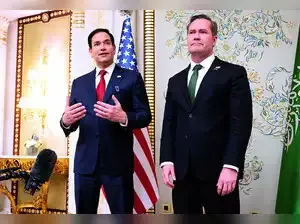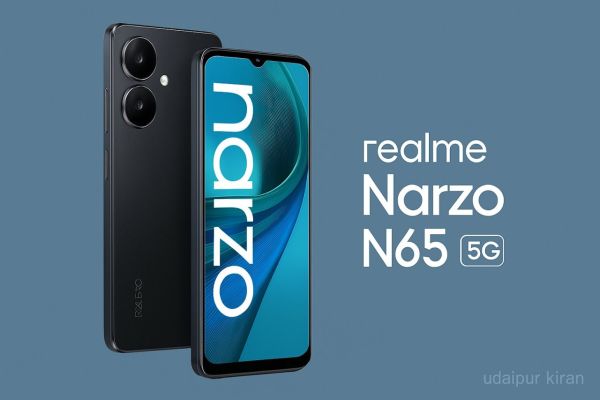In an unexpected turn of events, veteran US journalist Jeffrey Goldberg said on March that he was accidentally added to a group chat with top members of the Trump Administration, as they discussed plans to attack the Houthis of Yemen earlier this month. Goldberg, the editor-in-chief of The Atlantic magazine, detailed the events in an article for the publication (“The Trump Administration Accidentally Texted Me Its War Plans”). The group chat on the encrypted messaging platform Signal included US Vice President JD Vance, Defence Secretary Pete Hegseth, National Security Adviser Michael Waltz and Secretary of State Marco Rubio.
ALSO READ: 'Not a big fan of Atlantic, going out...': Trump's bizarre response after major military security breach
According to the US President, the military intelligence breach likely happened when a junior staff member working for national security adviser Mike Waltz somehow included Goldberg in the high-level discussion group. The group named "Houthi PC small group" had 18 senior officials coordinating the US military response to Houthi aggression.
In an interview with Newsmax, Trump said, "And what it was, we believe, is somebody that was on the line with permission; somebody that was with Mike Waltz — worked for Mike Waltz at a lower level — had, I guess, Goldberg's number or called through the app, and somehow this guy ended up on the call. Now, it wasn't classified, as I understand it. There was no classified information. There was no problem, and the attack was a tremendous success."
"I can only go by what I was told; I wasn't involved in it. But I was told by — and the other people weren't involved at all. But I feel very comfortable, actually," he added.
ALSO READ: Who is Jeffrey Goldberg, the Atlantic's editor who was 'accidentally' added to top Trump officials' secret Yemen strike chats
The Atlantic's editor-in-chief, Jeffrey Goldberg, was added to the classified group just before the US launched military strikes against the Houthis. The classified group chat, named "Houthi PC small group," included high-level discussions about the impending military operation, with national security adviser Mike Waltz coordinating the US response to Houthi aggression.
ALSO READ: ‘This can’t be real’: How The Atlantic’s editor ended up in a private Trump admin war chat
According to Goldberg, this Signal group had 18 participants. Besides Waltz, some of the members were individuals who identified themselves as vice president JD Vance, defense secretary Pete Hegseth, secretary of state Marco Rubio, director of national intelligence Tulsi Gabbard, treasury secretary Scott Bessent, CIA director John Ratcliffe, Trump's Middle East and Ukraine envoy Steve Witkoff, White House chief of staff Susie Wiles, homeland security adviser Stephen Miller, and others.
ALSO READ: Trump team's leaked 'war plan' messages exposed as JD Vance and others blast 'pathetic, free-loading Europe'
“We made a mistake. We’re moving forward,” Waltz said, adding that he took “full responsibility” for the incident.
Earlier, Trump criticized The Atlantic and Goldberg, stating that the administration would limit its use of the messaging app for sensitive communications going forward. “We won’t be using it very much,” Trump said of Signal. “That’s one of the risks when you’re not in the Situation Room with no phones allowed, which is always the best, frankly. If it were up to me, everyone would be in a room together—with solid lead walls, a lead ceiling, and a lead floor.”
Who added the Atlantic editor to the group chat?
On Tuesday, US President Donald Trump addressed a security breach where the Atlantic editor in chief Jeffrey was added to a classified Signal group chat discussing sensitive military operations against the Iran-backed rebel group Houthis.ALSO READ: 'Not a big fan of Atlantic, going out...': Trump's bizarre response after major military security breach
According to the US President, the military intelligence breach likely happened when a junior staff member working for national security adviser Mike Waltz somehow included Goldberg in the high-level discussion group. The group named "Houthi PC small group" had 18 senior officials coordinating the US military response to Houthi aggression.
In an interview with Newsmax, Trump said, "And what it was, we believe, is somebody that was on the line with permission; somebody that was with Mike Waltz — worked for Mike Waltz at a lower level — had, I guess, Goldberg's number or called through the app, and somehow this guy ended up on the call. Now, it wasn't classified, as I understand it. There was no classified information. There was no problem, and the attack was a tremendous success."
"I can only go by what I was told; I wasn't involved in it. But I was told by — and the other people weren't involved at all. But I feel very comfortable, actually," he added.
ALSO READ: Who is Jeffrey Goldberg, the Atlantic's editor who was 'accidentally' added to top Trump officials' secret Yemen strike chats
'The only glitch in two months'
Trump downplayed the security breach as "the only glitch in two months" and he assured that no classified information was compromised, adding that the military operation was a "tremendous success". The group reportedly included high-ranking officials such as Vice President JD Vance, Defense Secretary Pete Hegseth, Secretary of State Marco Rubio, and other key administration figures.The Atlantic's editor-in-chief, Jeffrey Goldberg, was added to the classified group just before the US launched military strikes against the Houthis. The classified group chat, named "Houthi PC small group," included high-level discussions about the impending military operation, with national security adviser Mike Waltz coordinating the US response to Houthi aggression.
ALSO READ: ‘This can’t be real’: How The Atlantic’s editor ended up in a private Trump admin war chat
According to Goldberg, this Signal group had 18 participants. Besides Waltz, some of the members were individuals who identified themselves as vice president JD Vance, defense secretary Pete Hegseth, secretary of state Marco Rubio, director of national intelligence Tulsi Gabbard, treasury secretary Scott Bessent, CIA director John Ratcliffe, Trump's Middle East and Ukraine envoy Steve Witkoff, White House chief of staff Susie Wiles, homeland security adviser Stephen Miller, and others.
'We made a mistake'
The national security adviser stated that he was uncertain how Goldberg ended up in the chat. “I’ve never met him, don’t know him, and have never communicated with him,” Waltz said. Later on Tuesday, during an appearance on Fox News Channel’s The Ingraham Angle, Waltz admitted that he had created the message chain and that White House technical experts were investigating how Goldberg’s contact “may have been inadvertently included.”ALSO READ: Trump team's leaked 'war plan' messages exposed as JD Vance and others blast 'pathetic, free-loading Europe'
“We made a mistake. We’re moving forward,” Waltz said, adding that he took “full responsibility” for the incident.
Earlier, Trump criticized The Atlantic and Goldberg, stating that the administration would limit its use of the messaging app for sensitive communications going forward. “We won’t be using it very much,” Trump said of Signal. “That’s one of the risks when you’re not in the Situation Room with no phones allowed, which is always the best, frankly. If it were up to me, everyone would be in a room together—with solid lead walls, a lead ceiling, and a lead floor.”








